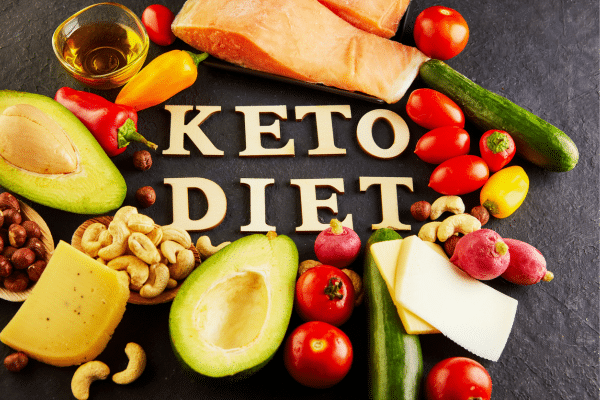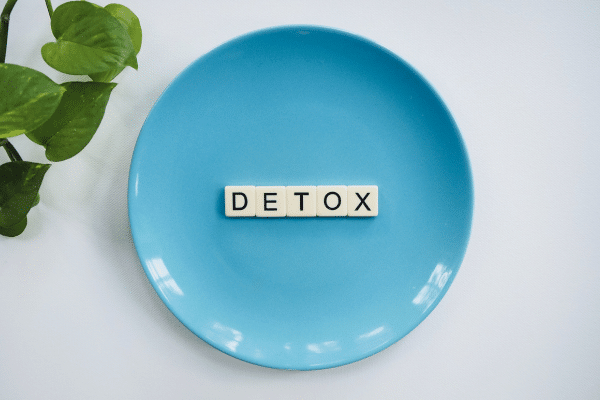Fad diets often promise quick weight loss and other health benefits, yet they can carry significant risks. Many of these diets gain popularity through celebrity endorsements or social media, but lack scientific backing. Understanding the potential dangers and nutritional deficiencies associated with certain diets is crucial before making any dietary changes. This post delves into several popular diets, highlighting why they might do more harm than good and emphasizing the importance of balanced nutrition and professional advice.
Contents
Paleo Diet

The Paleo Diet, based on the presumed eating habits of Paleolithic humans, focuses on foods like meat, fish, and vegetables, while excluding dairy, grains, and processed foods. Proponents claim it leads to weight loss and health improvements. However, this diet’s emphasis on certain food groups raises concerns about its nutritional balance. It often leads to a high intake of protein and fat, potentially increasing the risk of heart disease and other health issues. Furthermore, the exclusion of whole grains and dairy can result in deficiencies in essential nutrients like calcium and fiber.
This diet’s historical premise is also questionable. Modern interpretations of Paleolithic eating overlook the vast dietary diversity of ancient human populations. The diet’s strict rules can make it difficult to maintain long-term, leading to a yo-yo effect in weight management. It also tends to be more expensive and less accessible, making it impractical for many. Additionally, the diet lacks substantial long-term studies confirming its alleged health benefits, casting doubt on its effectiveness.
Baby Food Diet

The Baby Food Diet involves replacing one or two daily meals with jars of baby food, a trend popularized for its simplicity and portion control. This diet’s primary appeal lies in its low calorie count, which can lead to quick weight loss. The convenience of pre-packaged, portion-controlled servings also attracts those seeking a straightforward diet plan. However, this diet’s effectiveness and safety are questionable for adults seeking long-term health and weight management solutions.
One major drawback of the Baby Food Diet is its potential nutritional inadequacy for adults. Baby food, while rich in certain nutrients, is designed for infants, not adults with different nutritional needs. The diet’s low protein and fiber content can lead to muscle loss and digestive issues. Furthermore, the repetitive nature of consuming baby food can result in boredom and dissatisfaction, making it unsustainable. There’s also a lack of scientific evidence supporting its effectiveness in weight loss or health improvement, making it a risky dietary choice.
Cabbage Soup Diet

The Cabbage Soup Diet is a short-term weight loss program that involves consuming large quantities of cabbage soup for seven days. This diet promises significant weight loss, up to 10 pounds within a week, by drastically reducing calorie intake. The main appeal lies in its promise of rapid weight loss and the simplicity of the meal plan. However, this diet is not only monotonous but also nutritionally imbalanced. It lacks adequate protein, healthy fats, and essential nutrients, leading to potential health risks.
Critics of the Cabbage Soup Diet highlight its unsustainable nature. The weight lost is primarily water weight, not fat, and is often quickly regained once normal eating resumes. The diet can also cause side effects like fatigue, dizziness, and gastrointestinal discomfort due to its high fiber content. Moreover, the extreme calorie restriction can slow down metabolism, making it harder to maintain weight loss in the long term. Its lack of variety can also discourage adherence, leading to nutritional deficiencies and a disrupted relationship with food.
Ketogenic Diet

The Ketogenic Diet, high in fats and low in carbohydrates, aims to induce a state of ketosis in the body, where fat is burned for energy instead of carbohydrates. This diet has gained popularity for its potential benefits in weight loss, diabetes management, and neurological diseases. However, transitioning to ketosis can be challenging, often leading to symptoms like headaches, fatigue, and irritability, commonly known as the keto flu. The diet’s strict carbohydrate restriction can also make it difficult to follow and potentially socially isolating.
Long-term adherence to the Ketogenic Diet raises concerns. It can lead to nutrient deficiencies due to the exclusion of certain fruits, vegetables, and whole grains, which are essential sources of vitamins, minerals, and fiber. The high intake of saturated fats might increase the risk of heart disease, and there is a potential for liver and kidney problems due to the diet’s high fat and protein content. Moreover, the long-term effects of such a high-fat diet on overall health are still not well-understood, with more research needed to validate its safety and efficacy.
Detox Diets

Detox Diets, often marketed for their ability to cleanse the body of toxins and promote weight loss, typically involve a period of fasting followed by a strict diet of fruits, vegetables, juices, and water. Some versions also include herbs, teas, and supplements. These diets are appealing due to their promise of quick weight loss and a feeling of general well-being. However, the concept of detoxification has been criticized by health experts as unnecessary and potentially harmful, as the human body is naturally equipped to eliminate toxins through the liver, kidneys, and colon.
These diets can lead to nutrient deficiencies and imbalances, as they often lack essential proteins and fats. The extreme caloric restriction can cause fatigue, dizziness, and dehydration. The weight loss associated with detox diets is mostly water weight and is typically regained once a regular diet is resumed. Furthermore, these diets can foster an unhealthy relationship with food and can be particularly dangerous for individuals with certain health conditions. The claimed benefits of detoxification have little scientific backing, making these diets more of a trend than a healthful choice.
Alkaline Diet

The Alkaline Diet is based on the premise that certain foods can affect the body’s pH levels and that a more alkaline pH can improve health and prevent diseases. It encourages the consumption of alkaline foods like fruits and vegetables while discouraging acidic foods like meat and processed foods. While promoting the intake of healthy foods is beneficial, the scientific basis for altering body pH through diet is weak. The body maintains its pH balance regardless of diet, and most of the claimed benefits lack substantial scientific support.
Adherents to the Alkaline Diet may experience initial weight loss due to the elimination of processed foods and increased fruit and vegetable intake. However, the diet’s restrictions can lead to a lack of protein and essential nutrients found in excluded food groups, potentially resulting in nutritional deficiencies. It also overlooks the health benefits of balanced food groups, including whole grains and dairy. The emphasis on food pH rather than nutritional value can mislead individuals about healthy eating practices, potentially leading to imbalanced eating habits.
Grapefruit Diet

The Grapefruit Diet, also known as the Hollywood Diet, is a short-term weight loss plan that involves consuming grapefruit or grapefruit juice with every meal. The diet claims that grapefruit contains enzymes that burn fat, leading to rapid weight loss. This diet is low in calories and highly restrictive, often excluding entire food groups. While grapefruit itself is nutritious, the diet’s overall plan is nutritionally unbalanced and not based on scientific evidence.
The Grapefruit Diet’s severe calorie restriction can result in quick weight loss, but much of this weight is likely to be water and muscle, not fat. The diet’s monotonous nature makes it difficult to sustain and can lead to nutritional deficiencies. Additionally, grapefruit can interact with certain medications, posing health risks for some individuals. The diet’s lack of variety and extreme calorie restriction can also lead to feelings of deprivation and subsequent overeating, counteracting any weight loss achieved.
The Bottom Line
Choosing a balanced, nutritionally adequate diet is essential for health and well-being. Fad diets like the Paleo, Baby Food, Cabbage Soup, Ketogenic, Detox, Alkaline, HCG, and Grapefruit diets often promise quick results but can lead to nutritional deficiencies, health risks, and unsustainable weight loss. It’s important to approach weight loss and dieting with a focus on long-term health and lifestyle changes rather than short-term fixes. Consulting healthcare professionals for personalized dietary advice is always recommended to ensure safety and efficacy in dietary choices.


